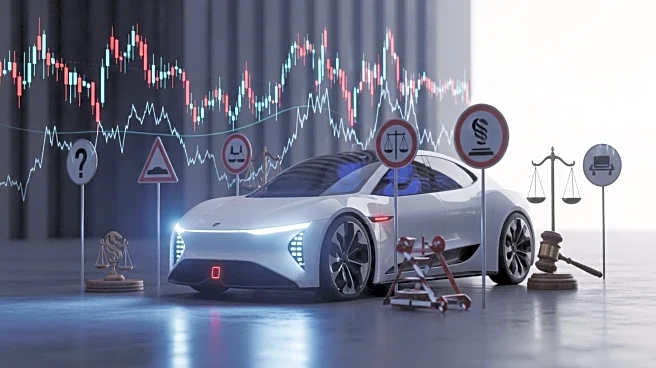What's Happening?
Tesla's ambitious plans to dominate the autonomous vehicle sector with its robotaxi service are encountering significant regulatory and market challenges. The National Highway Traffic Safety Administration (NHTSA) has adjusted its policies to ease crash reporting requirements, which benefits Tesla by reducing compliance burdens. However, the NHTSA is also auditing Tesla for delayed crash reports, raising concerns about safety transparency. Tesla's stock initially surged following the robotaxi launch in Austin, but later plummeted due to ongoing investigations and a $243 million verdict related to a 2019 Autopilot incident. The company's reliance on a camera-based Full Self-Driving system, as opposed to competitors' sensor-heavy approaches, has sparked debate over safety and technological credibility.
Why It's Important?
The developments surrounding Tesla's robotaxi initiative highlight the complex interplay between innovation, regulation, and market dynamics in the autonomous vehicle industry. Tesla's ability to navigate these challenges could significantly impact its market position and investor confidence. The regulatory scrutiny underscores the importance of safety and transparency in the deployment of autonomous technologies. As Tesla pushes forward with its AI-driven vision, the outcome of these regulatory and market challenges will be crucial in determining the future of autonomous mobility and its acceptance by the public and investors.
What's Next?
Tesla's path forward involves addressing regulatory concerns and demonstrating the reliability of its autonomous technology. The NHTSA's ongoing investigations and requests for operational details will likely influence Tesla's strategy and investor sentiment. The company's ability to adapt to evolving standards and maintain technological credibility will be key factors in its pursuit of dominance in the autonomous vehicle market.











